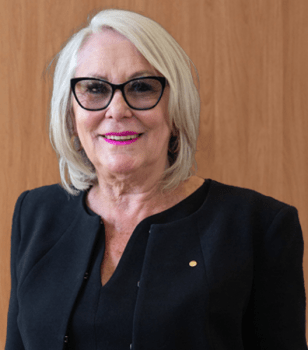The New South Wales government has introduced an Australia-first statewide mandate for food waste recycling.
Legislation introduced in November has been passed to ensure households and businesses comply with a food organics and garden organics recycling scheme. Businesses and institutions will be expected to comply with the initiative by July 2026; households from 2030.

“We cannot kick this can down the road any longer,” said Minister for the Environment Penny Sharpe. “The new FOGO laws mean New South Wales is leading the nation in combating food waste, becoming the first to mandate this recycling revolution across the state.”
The NSW Environment Protection Authority will work with councils, communities and industry to ensure “a smooth and effective” transition to the weekly FOGO collection service to reduce food waste and prevent it going to landfill.
In NSW, more than a third of the waste generated by households sent to landfill is food. Each year, food businesses across the state send 500,000 tonnes of waste to landfill. Every tonne of organic waste diverted from landfill saves 1.5 tonnes of CO2 from being emitted.
Greater Sydney is running out of ways to safely manage red bin waste and is predicted to run out of landfill capacity by 2030 – or earlier, says the EPA. Analysis of the proposed FOGO mandates predicts almost 950,000 tonnes of household waste will be diverted each year from landfill and into circular economy products, such as compost.
Seventy councils have already implemented or are planning to implement a FOGO recycling service, says the EPA. Some councils began reducing the size of the red bins or collecting red bin waste fortnightly to accommodate the FOGO scheme, resulting in community backlash with residents complaining of smelly bins, maggots and flies.
The industry that processes waste into compost has also complained of FOGO bins being contaminated with plastics, glass and other rubbish.
The EPA will check compliance of government-run facilities such as hospitals and schools. Local councils will check compliance of facilities such as pubs and clubs, cafes and restaurants, food courts and aged care homes.
The major supermarket chains will be required to report on the amounts and types of surplus food donated to charities.
Councils can face a maximum fine of up to $50,000 with a further $50,000 a day for repeated non-compliance. Ahead of the FOGO legislation debate in parliament, Sharpe wrote to the peak body for local government in NSW to explain why the penalties are in place.
They were there, she said, “to ensure a council doesn’t choose to overtly ignore the legislation or consider non-compliance as a ‘cost of doing business’.” However, added Sharpe, “they are not something that is intended to be used in the first place”.
Sharpe told Local Government NSW that there would be exemptions when the EPA considers them necessary. “The EPA will work with councils and LGNSW as we develop the exemption framework to guide decision making … One of the guiding principles is that we do not wish to punish anyone where access to a FOGO service is limited or cost prohibitive.”
The NSW government will provide financial support for community education, said Sharpe. The funding package will be announced in the coming weeks “and is expected to flow quickly to councils”.

While councils support measures to reduce waste going to landfill and, largely, supports FOGO collection, Phyllis Miller – LGNSW president – has an however. She told GN: “However, it’s critical that the NSW government continues to include councils in the planning for how FOGO will be implemented statewide. The FOGO mandated collection is not due to commence until 2030 for residential waste collections, giving councils and the NSW government time to consider and address council and community concerns.”
LGNSW also supports the exemptions, “whether for entire local government areas, where a FOGO collection is not feasible or viable, or for more specific cases, which LGNSW expects might include classes of buildings such as large apartment buildings where the building’s internal infrastructure does not support a FOGO collection,” said Miller.
“LGNSW supports these exemption-making clauses, which recognise that all councils and communities are different, and a one-size-fits all approach to FOGO collection is not suitable,” she added.
Noting that the NSW government currently collects around $1 billion annually through the Waste Levy – charged per tonne of waste sent for disposal, Miller told GN: “LGNSW has long called for 100 per cent of these funds to be reinvested to support the circular economy, and this should include fully funding the costs of FOGO implementation so that these costs are not shifted to councils and their communities.”




Leave a Reply